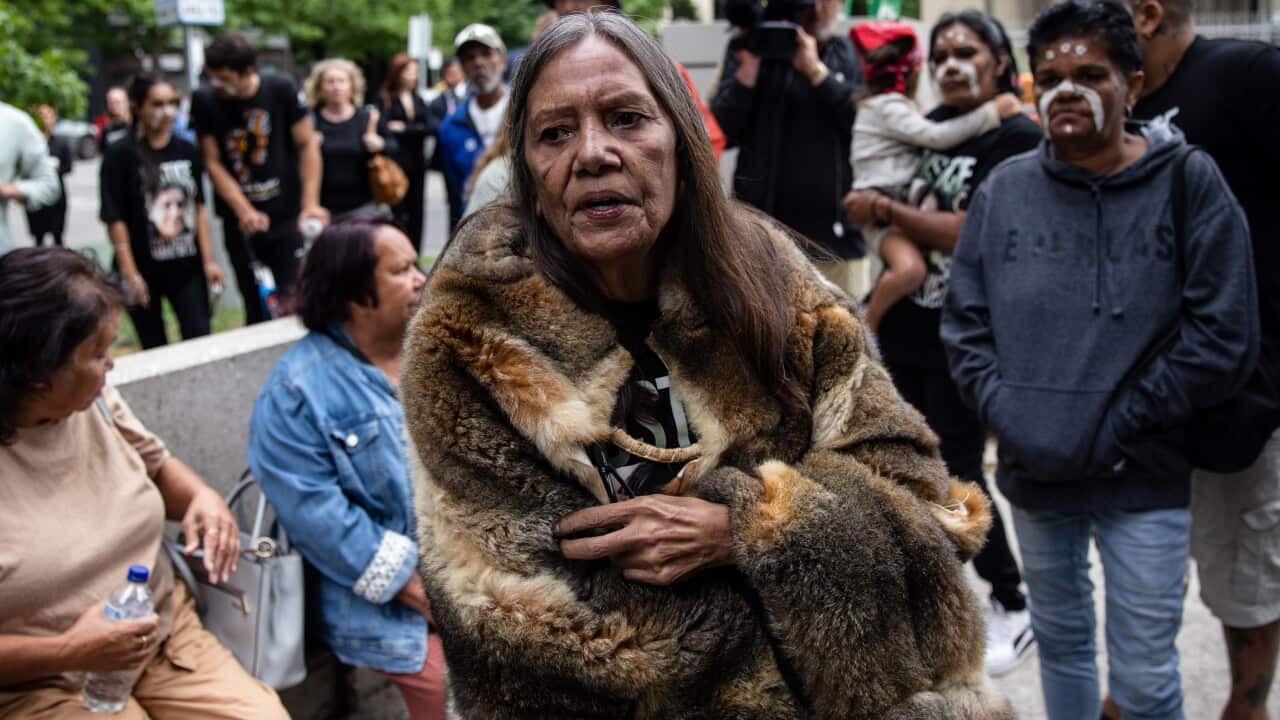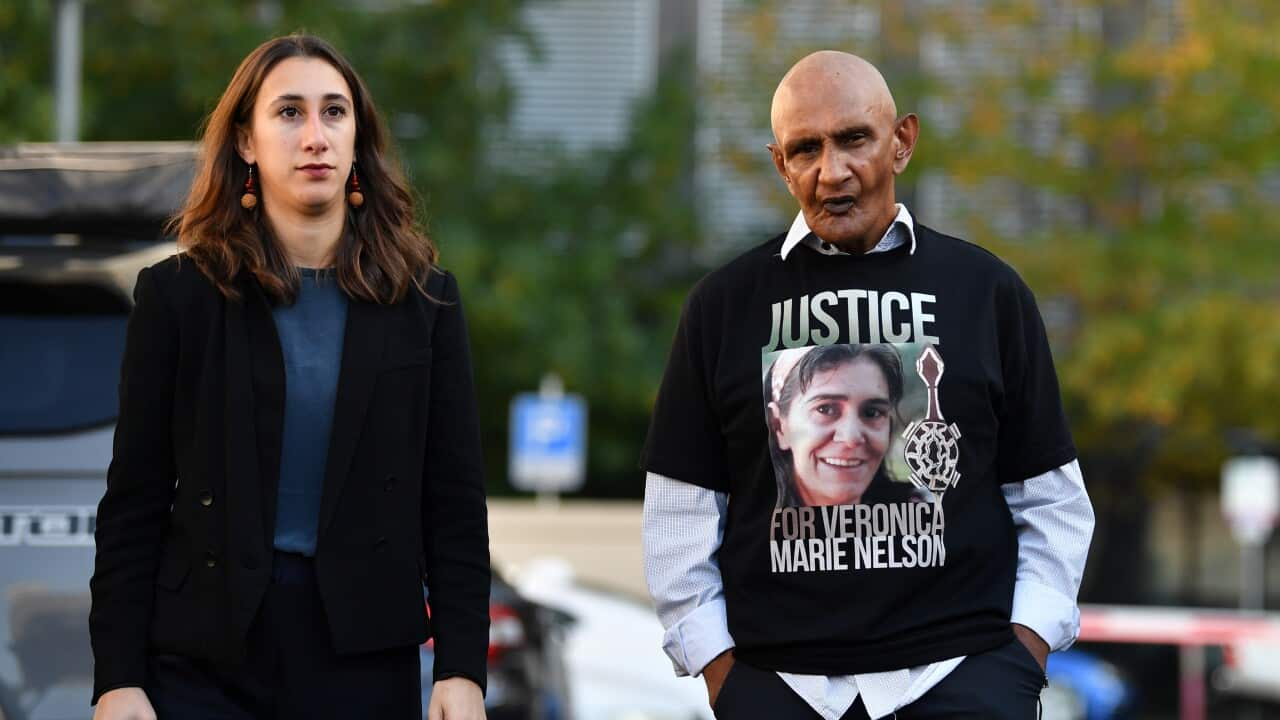The healthcare provider for a Victorian jail where an Aboriginal woman died will be referred to prosecutors for criminal charges.
The Gunditjmara Dja Dja Wurrung Wiradjuri Yorta Yorta woman, Veronica Nelson, had been transferred to a regular cell after suffering two days of severe opioid withdrawals in a medical ward.
But the 37-year-old's repeated pleas were knocked back by prison guards and healthcare staff.

Gunditjmara, Dja Dja Wurrung, Wiradjuri and Yorta Yorta woman, Veronica Marie Nelson. Source: Supplied
He will also refer the matter to the Department of Public Prosecution after finding CorrectCare, the health care provider for Dame Phyllis Frost Centre, failed to prevent a risk to the health and safety of non-employees.
"They did not apply clear processes and regulations, and I have a significant level of belief that an offence was committed," he said.
'My daughter's pleas for help haunt me every night'
The court room was filled with family and supporters, many from Shepparton and Narrandera in NSW, wearing 'Justice for Veronica Marie Nelson' t-shirts and others bearing traditional ochre markings.
Ms Nelson's mother, Aunty Donna Nelson, sat in the front row of the court wearing a possum skin cloak and wiped away tears throughout the hearing.
For Aunty Donna, it was the first time she'd watched her daughter's final moments.
"I chose for a long time not to hear or watch the tapes of her final moments, but I finally watched them during this inquest. It ruined me, and has changed me forever," she said.
"My daughter's pleas for help haunt me every night, and I can't stop hearing her voice."
She thanked all those that had fought for her "Poccum".
"My Poccum should not have been locked up. She should not have begged for her life. She should be here with me today," she said.
"If we do not change bail laws today, it will be someone else's daughter tomorrow."
The real impact of bail reform
Mr McGregor's highly anticipated findings follow a five-week inquest, which ended in May last year.
Victoria's bail laws are widely considered to be among the toughest in the country.
The state government made changes to the Bail Act in 2018 under expert advice in response to the 2017 Bourke Street massacre.
"The Bail Act has a discriminatory impact on First Nations people, resulting in grossly disproportionate rates remanded in custody, the most egregious of which affects alleged offenders who are Aboriginal and Torres Strait Islander women," Mr McGregor said.
He said prior to those changes Aboriginal and Torres Strait Islander people made up 8.2 per cent of the state's prison population, and First Nations women were 10 per cent of female inmates.
But the number of Aboriginal women nearly doubled after the 2018 changes, Mr McGregor said.
Of those, 61 per cent of unsentenced women were held on charges that did not involve violence.

Veronica Nelson’s family members, friends and supporters participate in a smoking ceremony outside the Coroners Court of Victoria. Source: AAP / Diego Fedele/AAP Image
System failure
Mr McGregor also found that Victoria Police failed to consider Ms Nelson's Aboriginality and vulnerability, and violated her human rights.
Police argued she posed an unacceptable risk of re-offending, and should not have been granted bail.
Mr McGregor said the remand summary was riddled with mistakes and was misleading.
Without legal representation for her bail application, Ms Nelson did not challenge those claims, nor was she aware of her rights, the coroner said.
"Her journey through the criminal justice system occurred without her speaking to a single Aboriginal person employed in these roles," he said.
He called for urgent bail reform, stating the "reverse onus regime incompatible with human rights".
Ms Nelson was arrested on December 30, 2019, on warrants for breaching bail and suspicion of shoplifting.
Following her 49 calls for help, Ms Nelson was found dead in her cell at Dame Phyllis Frost Centre on January 2.
She died from complications of Wilkie's syndrome, in a setting of withdrawal from heroin.
The coroner found corrections had failed to provide her with adequate healthcare.
After pressure from Ms Nelson's family and legal advocates, Victorian Attorney-General Jaclyn Symes last week confirmed changes to the laws were being discussed.











